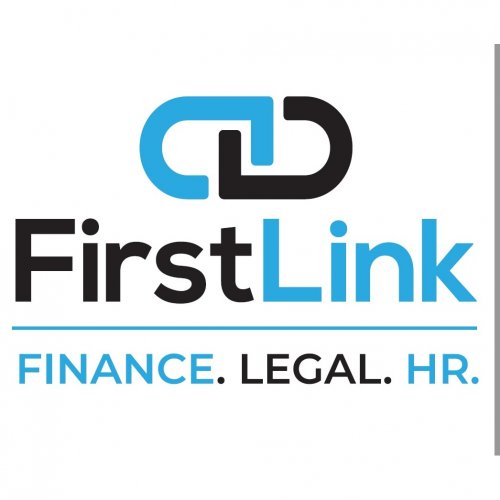Best Patent Lawyers in Trinidad and Tobago
Share your needs with us, get contacted by law firms.
Free. Takes 2 min.
Or refine your search by selecting a city:
List of the best lawyers in Trinidad and Tobago
About Patent Law in Trinidad and Tobago
Patent law in Trinidad and Tobago serves to protect inventions by granting exclusive rights to inventors. Patent rights enable inventors to prevent others from making, using, or selling their invention for a limited period, typically 20 years from the filing date. This legal framework encourages innovation, facilitates the transfer of technology, and contributes to economic growth.
Why You May Need a Lawyer
Several scenarios may necessitate the assistance of a patent lawyer in Trinidad and Tobago. These include navigating the complex patent application process, which involves preparing documents and adhering to specific legal requirements. Additionally, if you need to enforce your patent rights or defend against claims of infringement, legal representation becomes crucial. Lawyers can also provide strategic advice on the management of your intellectual property portfolio and assist in licensing agreements. Having a knowledgeable lawyer can significantly enhance the protection and potential commercialization of your invention.
Local Laws Overview
The key piece of legislation governing patents in Trinidad and Tobago is the Patents Act, Chapter 82:76. This law outlines the criteria for patentability, which include novelty, inventive step, and industrial applicability. Patent applications are filed with the Intellectual Property Office (IPO) of Trinidad and Tobago, which conducts an examination to ensure compliance with statutory requirements. The Act also provides for the rights and obligations of patent holders, procedures for enforcement and dispute resolution, and the handling of international patent applications under treaties such as the Patent Cooperation Treaty (PCT).
Frequently Asked Questions
What is a patent?
A patent is a legal right granted to an inventor that allows them to exclude others from making, using, or selling their invention for a specified period, in exchange for public disclosure of the invention when the patent is granted.
How long does patent protection last in Trinidad and Tobago?
In Trinidad and Tobago, patents typically provide protection for 20 years from the filing date of the application, subject to the payment of annual renewal fees.
Who can apply for a patent?
Any individual or legal entity, including companies and organizations, that has invented a new and useful process, machine, article of manufacture, or composition of matter can apply for a patent.
What are the basic requirements for an invention to be patentable?
An invention must be new, involve an inventive step that is not obvious to someone skilled in the field, and be capable of industrial application.
Can I patent software in Trinidad and Tobago?
Software as such is not patentable. However, if a software invention involves a new process or improves a technical process, it may be patentable.
What is the procedure for filing a patent application?
The process involves submitting a complete application to the Intellectual Property Office, including a description of the invention, claims defining the scope of protection, and any necessary drawings. A patent search and examination are conducted before granting the patent.
Can I apply for international patent protection from Trinidad and Tobago?
Yes, through the Patent Cooperation Treaty (PCT), you can file an international application that provides protection in multiple countries, including Trinidad and Tobago.
What happens if someone infringes on my patent?
You have the right to take legal action against the infringer to enforce your patent rights. This could involve negotiations, settlement, or court proceedings.
How can a lawyer assist me with patents?
A lawyer can help with drafting and filing patent applications, advise on patent strategy, counsel on licensing and enforcement, and represent you in legal disputes related to infringement.
What should I do before applying for a patent?
Conduct a patent search to ensure your invention is unique, prepare detailed documentation of your invention, and consult with a patent lawyer to evaluate your idea's patentability.
Additional Resources
For more information on patents in Trinidad and Tobago, you may contact the Intellectual Property Office of Trinidad and Tobago. The World Intellectual Property Organization (WIPO) also provides useful resources and guidelines on international patent protection.
Next Steps
If you need legal assistance with patents, consider consulting with a qualified patent attorney who specializes in intellectual property law. They can provide guidance tailored to your specific situation. It's advisable to gather all pertinent information about your invention, any existing patents or publications, and have a preliminary understanding of the patent processes.
Lawzana helps you find the best lawyers and law firms in Trinidad and Tobago through a curated and pre-screened list of qualified legal professionals. Our platform offers rankings and detailed profiles of attorneys and law firms, allowing you to compare based on practice areas, including Patent, experience, and client feedback.
Each profile includes a description of the firm's areas of practice, client reviews, team members and partners, year of establishment, spoken languages, office locations, contact information, social media presence, and any published articles or resources. Most firms on our platform speak English and are experienced in both local and international legal matters.
Get a quote from top-rated law firms in Trinidad and Tobago — quickly, securely, and without unnecessary hassle.
Disclaimer:
The information provided on this page is for general informational purposes only and does not constitute legal advice. While we strive to ensure the accuracy and relevance of the content, legal information may change over time, and interpretations of the law can vary. You should always consult with a qualified legal professional for advice specific to your situation.
We disclaim all liability for actions taken or not taken based on the content of this page. If you believe any information is incorrect or outdated, please contact us, and we will review and update it where appropriate.
Browse patent law firms by city in Trinidad and Tobago
Refine your search by selecting a city.














